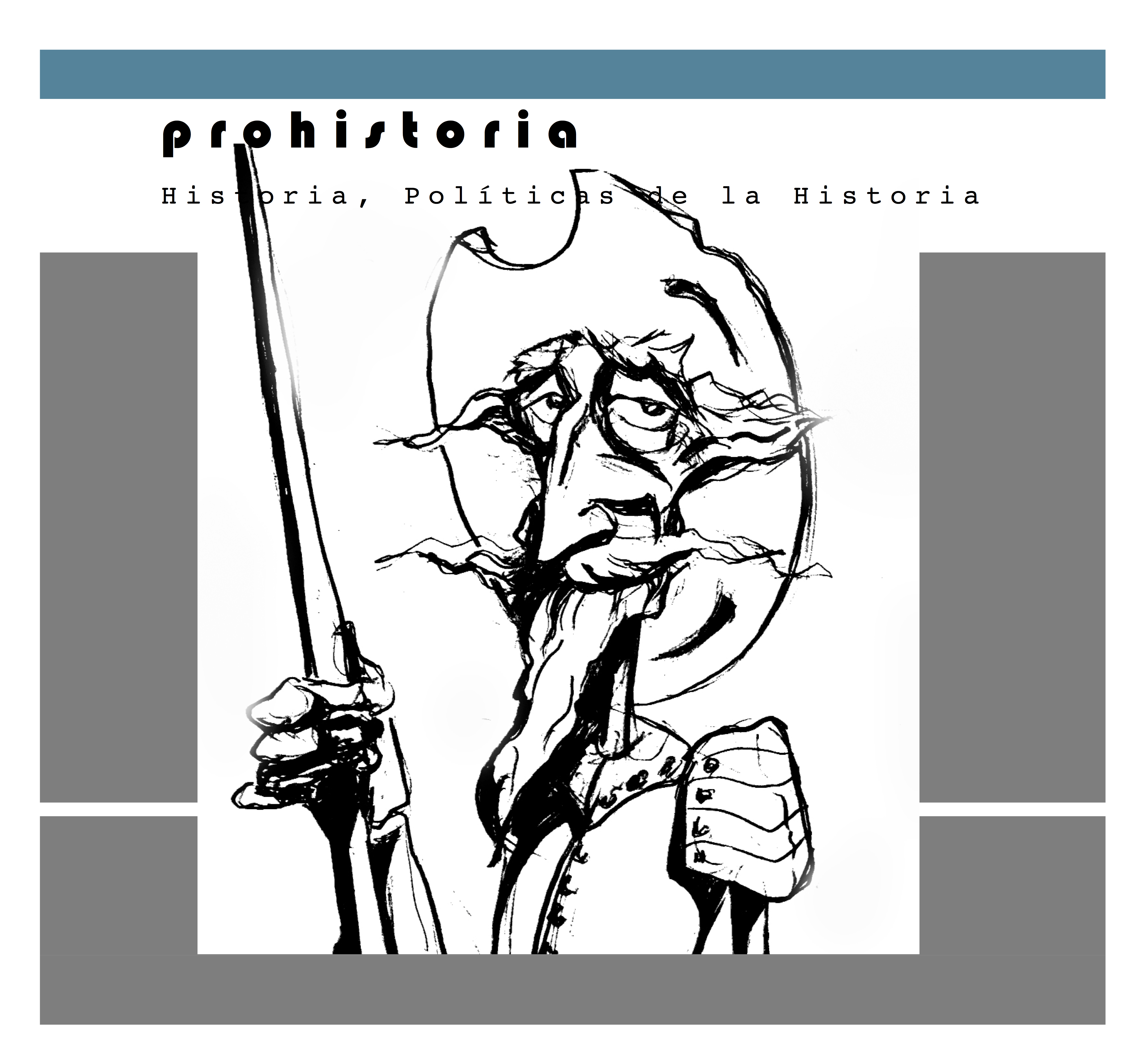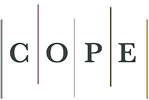Testimony as “Survival” of an “Irrevocable” Past: Historiography, Present and Temporality
DOI:
https://doi.org/10.35305/prohistoria.vi37.1611Keywords:
Testimony, Historiography, Temporality, Irrevocable Past, SurvivalAbstract
Traditionally, testimony was understood by historiography either as a vestige of the past, from which knowledge could be extracted by inferential means, or as a direct access route to it, generally marked by the psychoanalytic notion of “trauma”. In this paper I propose an approach to testimony as “survival” of an “irrevocable past”. Through the concept of “survival”, developed by the art historian Georges Didi-Huberman, I will try to unpin the testimony of its uses marked by the aforementioned temporal dichotomy and to assess its temporarily impure character. The notion of “irrevocable past”, as introduced by Berber Bevernage, will allow me to propose that historical time, in general, and the present, in particular, are not something given and self-evident but constructed and disputed.
Downloads
References
Aboy Carlés, G. (2001). Las dos fronteras de la democracia argentina. La redefinición de las identidades políticas de Alfonsín a Menem, Homo Sapiens.
Acha, O. (1995). El pasado que no pasa: la Historikerstreit y algunos problemas actuales de la historiografía. Entrepasados. Revista de historia, V(9), 113-142.
Águila, G. (2012). La Historia Reciente en la Argentina: un balance. Historiografías: revista de historia y teoría, 3(enero-junio), 62-76.
Allier Montaño, E. (2018). Balance de la historia del tiempo presente. Creación y consolidación de un campo historiográfico. Revista de Estudios Sociales [En línea], 65.
Alonso, L. (2010). Definiciones y tensiones en la formación de una Historiografía sobre el pasado reciente en el campo académico argentino. En J. A. Bresciano (Ed.), El tiempo presente como campo historiográfico.
Ankersmit, F. (2002). Historical Representation. Stanford University Press.
Aróstegui, J. (2004). La historia vivida. Sobre la historia del presente. Alianza Ensayo.
Austin, J. (1990). Cómo hacer cosas con palabras. Paidós.
Bevernage, B. (2010). Tiempo, presencia e injusticia histórica. En C. Macón & L. Cucchi (Eds.), Mapas de la transición. La política después del terror en Alemania, Chile, España, Guatemala, Sudáfrica y Uruguay. Ladosur. https://www.academia.edu/28321082/Tiempo_presencia_e_injusticia_histórica_In_Cecilia_Macon_and_Laura_Cucchi_ed_Mapas_de_la_transición_la_política_después_del_terror_en_Alemania_Chile_España_Guatemala_Sudáfrica_y_Uruguay_2010_
Bevernage, B. (2012). ‘Unpopular past’: The Argentine Madres de Plaza de Mayo and their Rebellion against History. 331-351. https://doi.org/10.4324/9780203182284
Bevernage, B. (2015). Historia, memoria y violencia estatal. Tiempo y justicia. Prometeo.
Bevernage, B. (2016). Tales of pastness and contemporaneity: on the politics of time in history and anthropology*. Rethinking History, 20(3), 352-374. https://doi.org/10.1080/13642529.2016.1192257
Bevernage, B., & Aerts, K. (2009). Haunting pasts: time and historicity as constructed by the Argentine Madres de Plaza de Mayo and radical Flemish nationalists. Social History, 34(4), 391-408. https://doi.org/10.1080/03071020903256986
Bloch, M. (1952). Apologie pour l’histoire ou métier d’historien (1949). Librairie Armand Colin. http://classiques.uqac.ca/classiques/bloch_marc/apologie_histoire/apologie_histoire.html
Burke, P. (Ed.). (2012). Formas de hacer historia. Alianza Editorial.
Caruth, C. (Ed.). (1995). Trauma: Explorations in Memory. The John Hopkins University Press.
Charlton, T., Myers, L., Sharpless, R., & Ballard, L. R. (Eds.). (2007). History of Oral History. Foundations and Methodology. Altamira Press.
Collingwood, R. G. (1994). The idea of history : with lectures 1926-1928. Oxford University Press.
De Certeau, M. (2006). La escritura de la Historia. Universidad Iberoamericana.
Delacroix, C., Dosse, F., & Garcia, P. (2010). Historicidades. Waldhuter.
Derrida, J. (1998). Espectros de Marx. El estado de la deuda, el trabajo del duelo y la nueva internacional. Editorial Trotta.
Didi-Huberman, G. (2009). La imagen superviviente. Historia del arte y tiempo de los fantasmas según Aby Warburg. Abada Ediciones.
Didi-Huberman, G. (2011). Ante el tiempo. Historia del arte y anacronismo de las imágenes. Adriana Hidalgo Editora.
Domanska, E. (2006). The Material Presence of the Past. History and Theory, 45(3), 337-348.
Fabian, J. (2006). Time and the other. How anthropology makes its object. Columbia University Press.
Fareld, V. (2018). History, Justice and the Time of the Imprescriptible. En S. Helgesson & J. Svenungsson (Eds.), The Ethos of History. Time and Responsability. Berghahn.
Felman, S., & Laub, D. (1992). Testimony. Crises of witnessing in literature, psychoanalisis and history. Routledge.
Finchelstein, F. (Ed.). (1999). Los alemanes, el Holocausto y la culpa colectiva. El debate Goldhagen. Eudeba.
Fisher, M. (2017). Realismo capitalista ¿No hay alternativa? Caja Negra.
Franco, M., & Lvovich, D. (2017). Historia Reciente: apuntes sobre un campo de investigación en expansión. Boletín del Instituto de Historia Argentina y Americana “Dr. Emilio Ravignani, Tercera se(47), 190-217.
Fraser, R. (1993). La Historia Oral como historia desde abajo. Ayer, 12, 79-92.
Friedlander, S. (2007). En torno a los límites de la representación. El nazismo y la Solución Final. Universidad Nacional de Quilmes Editorial.
Fritzsche, P. (2004). Stranded in the Present. Modern Time and the Melancholy of History. Harvard University Press.
Gumbrecht, H. U. (2010). Lento Presente. Sintomatología del nuevo tiempo histórico. Escolar y Mayo Editores.
Hartog, F. (2007). Regímenes de historicidad. Presentismo y experiencias del tiempo. UIA.
Hartog, F. (2011). Evidencia de la Historia. Univesidad Iberoamericana.
Henige, D. (2004). Historical Evidence and Argument. The University of Wisconsin Press.
Hobsbawm, E. (1998). Sobre la Historia. Crítica.
Jameson, F. (2016). Teoría de la posmodernidad. La lógica cultural del capitalismo tardío. Trotta Editorial.
Jankélévitch, V. (1965). L’Imprescriptible. La Revue administrative, 18(103), 37-42.
Jankélévitch, V. (2005). Forgiveness. University of Chicago Press.
Jelin, E. (2014). Las múltiples temporalidades del testimonio: el pasado vivido y sus legados presentes. Clepsidra. Revista interdisciplinaria de Estudios sobre Memoria, 1(1), 140-163.
Koselleck, R. (1993). Futuro pasado. Para una semántica de los tiempos históricos. Paidós.
Koselleck, R. (2001). Los estratos del tiempo: estudios sobre la Historia. Paidós.
Koselleck, R. (2013). Sentido y repetición en la historia. Hydra.
LaCapra, D. (2005). Escribir la historia, escribir el trauma. Ediciones Nueva Visión.
LaCapra, D. (2016). Representar el Holocausto. Historia, Teoría, Trauma. Prometeo.
Lesgart, C. (2003). Usos de la transición a la democracia, Homo Sapiens.
Levín, F. (2017). Escrituras de lo cercano. Apuntes para una teoría de la historia reciente argentina. Nuevo mundo mundos nuevos. https://doi.org/10.4000/nuevomundo.70734
Levín, F. (2020). Un grano de arena en la inmensidad del mar : lo que puede aportar la historia a la elaboración de pasados traumáticos. Historia da Historiografia, 13(33), 309-339.
Lorenz, C. (2015). Entre filosofía e historia. Volumen 1: exploraciones en filosofía de la historia. Prometeo.
Lorenz, F. (2013). Algo parecido a la felicidad. Una historia de la lucha de la clase trabajadora durante la década del setenta (1973-1978). Edhasa.
Lorenz, F. (2017). El obrero, el desaparecido de la memoria. Revista Anfibia. http://www.revistaanfibia.com/cronica/el-obrero-desaparecido-de-la-memoria/
Marrou, H.-I. (1999). El conocimiento histórico. Idea Universitaria.
Mudrovcic, M. I. (2005). Historia, narración y memoria. Los debates actuales en filosofía de la historia. Akal.
Mudrovcic, M. I. (2007). El debate en torno a la representación de acontecimientos límite del pasado reciente: alcances del testimonio como fuente. Diánoia, 52(59), 127-150. http://www.doaj.org/doaj?func=openurl&issn=01852450&date=2007&volume=52&issue=59&spage=127&genre=article
Mudrovcic, M. I. (2013). Regímenes de historicidad y regímenes historiográficos: del pasado histórico al pasado presente. Historiografías: revista de historia y teoría, 5(5), 11-31. http://dialnet.unirioja.es/servlet/articulo?codigo=4531434&info=resumen&idioma=SPA
Mudrovcic, M. I. (2019). The politics of time, the politics of history: who are my contemporaries? Rethinking History, 23(4), 456-473. https://doi.org/10.1080/13642529.2019.1677295
Oberti, A. (2015). Las revolucionarias: militancia, vida cotidiana y afectividad en los setenta. Edhasa.
Oberti, A., & Bacci, C. (2014). Dossier “Testimonio: Debates y Desafíos desde America Latina”. Clepsidra. Revista Interdisciplinaria de estudios sobre Memoria.
O´Donnell, G., Schmitter, P. y Whitehead, L. (1988). Transiciones desde un gobierno autoritario. América Latina. Paidós.
Passerini, L. (2009). Fascism in Popular Memory. The Cultural Experience of the Turin Working Class. Cambridge University Press.
Portantiero, J.C. y Nun, J. (1987). Ensayos sobre la transición democrática en la Argentina, Puntosur.
Portelli, A. (1990). The Death of Luigi Trastulli and Other Stories. Form and Meaning in Oral History. State University of New York Press.
Portelli, A. (1997). Raíces de una paradoja: La historia oral italiana. Historia, Antropología y Fuentes Orales, 17, 111-137.
Portelli, A. (2003). The Order Has Been Carried Out. History, Memory and Meaning of a Nazi Massacre in Rome. Palgrave Macmillan.
Rancière, J. (1996). Le concept d’anachronisme et la vérite de l’historien. L’Inactuel, 6, 53-68.
Rauschenberg, N. (2016). El problema de la normalización en tres debates : Historización , Historikerstreit y Goldhagen. Anos 90, 23(43), 443-487.
Rousso, H. (2013). The Latest Catastrophe. History, the Present, the Contemporary. The University of Chicago Press.
Sebe Bom Meihy, J. C. (2008). Tres alternativas metodológicas: historia de vida, historia temática y tradición oral. En P. Pozzi & G. Necoechea (Eds.), Cuentame cómo fue. Introducción a la historia oral. Imago Mundi.
Sommer, B., & Quinlan, M. K. (2009). The Oral History Manual. Altamira Press.
Thompson, P. (2000). The Voice of the Past. Oral History. Oxford University Press.
Wieviorka, A. (2006). The era of the witness. Cornell University Press.
Published
How to Cite
Issue
Section
License

This work is licensed under a Creative Commons Attribution-NonCommercial-ShareAlike 4.0 International License.
- Authors retain copyright and grant the journal right of first publication with the work simultaneously licensed under Creative Commons Attribution 4.0 International License.
- Authors are able to enter into separate, additional contractual arrangements for the non-exclusive distribution of the journal's published version of the work (e.g., post it to an institutional repository or publish it in a book), with an acknowledgement of its initial publication in this journal.
Copyright of this issue © Prohistoria. Historia, políticas de la historia



















